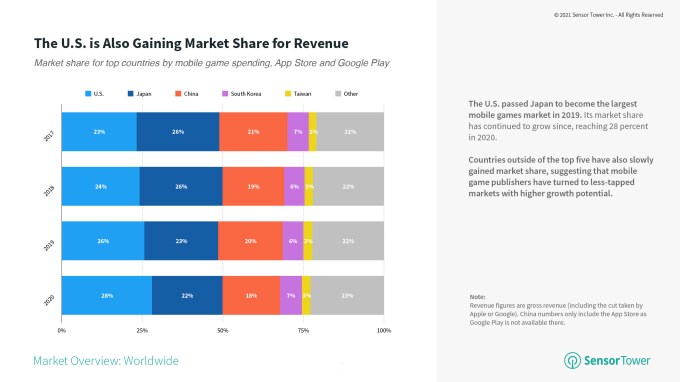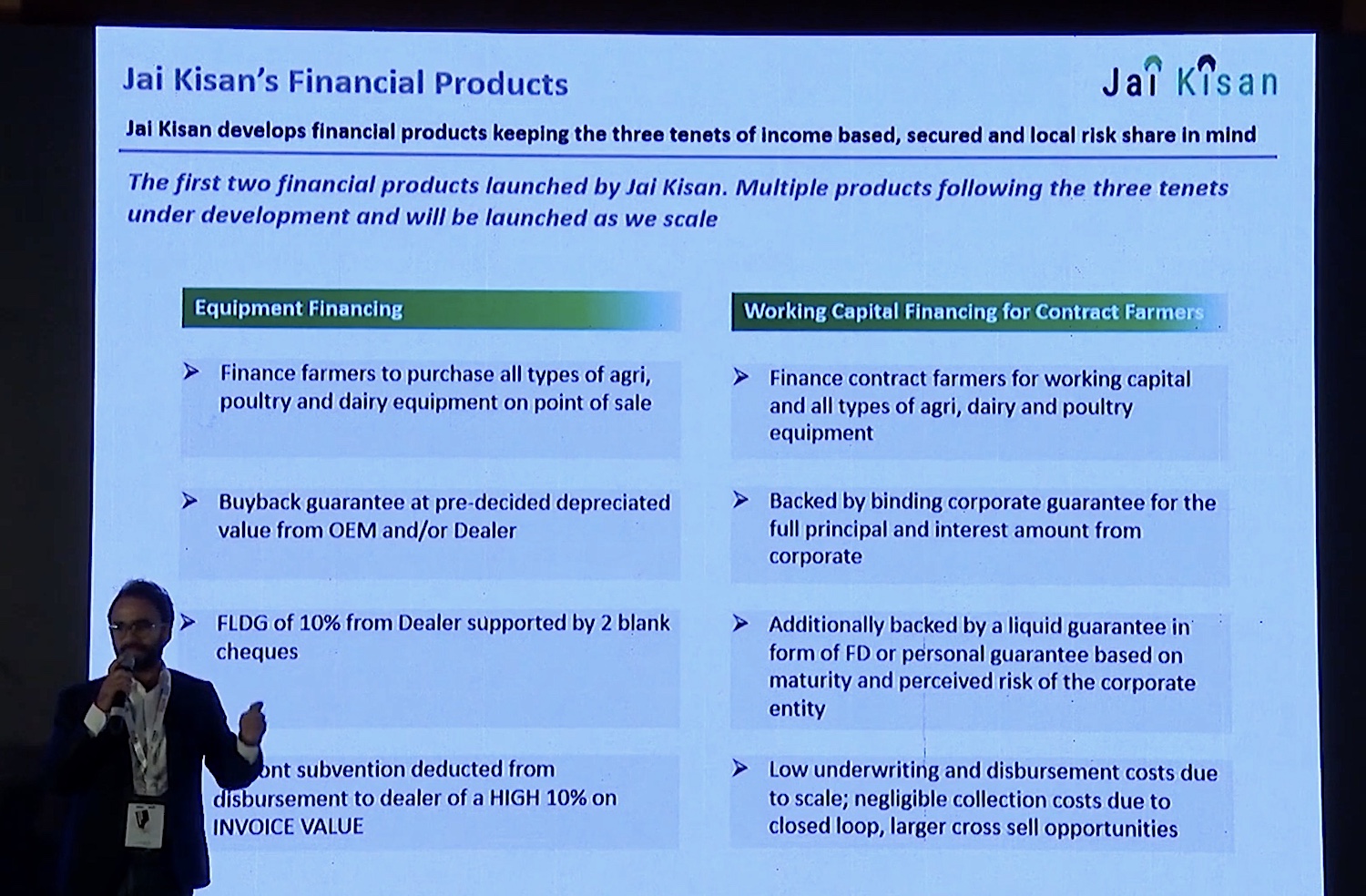- May 29, 2021
- by:
- in: Blog
Welcome back to This Week in Apps, the weekly TechCrunch series that recaps the latest in mobile OS news, mobile applications and the overall app economy. The app industry continues to grow, with a record 218 billion downloads and $143 billion in global consumer spend in 2020. Consumers last year also spent 3.5 trillion minutes using apps on Android devices
Welcome back to This Week in Apps, the weekly TechCrunch series that recaps the latest in mobile OS news, mobile applications and the overall app economy.
The app industry continues to grow, with a record 218 billion downloads and $143 billion in global consumer spend in 2020. Consumers last year also spent 3.5 trillion minutes using apps on Android devices alone. And in the U.S., app usage surged ahead of the time spent watching live TV. Currently, the average American watches 3.7 hours of live TV per day, but now spends four hours per day on their mobile devices.
Apps aren’t just a way to pass idle hours — they’re also a big business. In 2019, mobile-first companies had a combined $544 billion valuation, 6.5x higher than those without a mobile focus. In 2020, investors poured $73 billion in capital into mobile companies — a figure that’s up 27% year-over-year.
This Week in Apps will soon be a newsletter! Sign up here: techcrunch.com/newsletters
Top Stories
Facebook and Instagram apps will let you hide the “Like” counts

Image Credits: Instagram
Facebook this week will begin to publicly roll out the option to hide Likes on posts across both Facebook and Instagram, following earlier tests beginning in 2019. The project, which puts the decision about Likes in the hands of the company’s global user base, had been in development for years, but was deprioritized due to the COVID-19 pandemic and the response work required on Facebook’s part. When the company tested how people felt about Like counts, it got pushback from both sides — some wanted to see this information and others felt it was leading to a negative, competitive experience.
The company decided to split the difference and put the decision in its users’ hands. Via new settings, users can choose to disable Like counts on the posts they make and those that appear when they browse the social apps’ feeds.
The decision, however, indicates not one of user empowerment, but rather one representative of a company that’s so large (and intent on remaining the largest), it declines to have its own point of view on controversial matters for fear of causing a mass exit. You can see this in other areas of the business as well, like how it wanted to downplay its responsibility with regard to the misinformation it recirculated by leaving it to fact-checkers to handle, or how it offloaded hard decisions about takedowns to an advisory board. While it’s one thing to not want to piss off a large number of users, turning every toggle and setting into a user choice is just another way at shrugging off responsibility while claiming that something has been done.
Poparazzi hypes and growth hacks to the top

Image Credits: Poparazzi
Meanwhile, a new app with its own point of view has made it to the top. Recently launched anti-selfie app Poparazzi sees itself as a referendum on the Instagram age of performative and self-obsessed social media. The app turns the “tag your friends in photos” feature from Instagram into a standalone, excellently marketed and growth-hacked app experience.
Your Poparazzi profile can only be added to by your friends, which makes the app feel more authentic as it captures casual, unpolished moments, not those you’ve rehearsed and filtered to perfection. But the viral app favors giving up some user privacy protections for network effects, which could potentially be harmful. In the end, it also overlooks why people use social media today: self-expression. Posting pictures to other profiles doesn’t fulfill that desire. That means the app either become an additive experience to be used alongside your existing preferred social app, or one that’s risking a bet on a future where people are actually less self-involved. We can only hope.
Apple-Epic trial officially adjourns

Image credit: Andrew Harrer/Bloomberg via Getty Images
As the Apple-Epic App Store antitrust trial adjourns, the judge seemed leaning more to Epic’s point of view on specific matters, including the 30% cut Apple takes and its decision to ban companies from telling their customers where they could get a better deal on an in-app purchase. (Tim Cook taking the stand only to claim ignorance of certain key aspects of the App Store business didn’t help matters, either.)
At its core, the case is about whether or not Apple is a monopoly and could set the tone for later lawsuits and government regulation. Epic believes Apple has a monopoly over distribution to the iPhone, but Apple argued there were plenty of other places for a company like Epic to sell its games — including those that Epic pays a cut to without complaint, like Microsoft and Sony. Epic, meanwhile, argued that its metaverse is more than just a game, it’s a social place to hang out.
The judge pointed out both Epic’s plain-as-day ulterior motives (hint: $$$$), but also the extent to which mobile games — games that make up the lion’s share of App Store revenue — seem to be subsidizing the platform for others. That includes apps where Apple doesn’t take a cut of IAPs.
Still, for the judge to rule for Epic, she would have to find that Apple leveraged its market power as a monopoly. And that means Apple has to actually have a monopoly in the first place. But does it? There are other places to buy apps (Google’s Android devices, e.g.) and games, like console platforms. Epic wants the definition of a monopoly here narrowed to the market for apps on Apple devices, and that may not work. Though the trial has adjourned, a decision will still be months out, so don’t worry about prepping your in-app credit card forms and PayPal buttons yet.
Weekly News
Platforms: Apple

Image Credits: Apple
Apple released its agenda for WWDC 2021, which will still be virtual. The keynote address will air June 7 at 10 AM PDT, followed by the Platform State of the Union at 2 PM PDT. The schedule also includes the Apple Design Awards on June 10 at 2 PM PDT. Plus, there will be more than 200 sessions and labs, as well as special activities and events. New this year is “Pavilions,” which will better organize event sessions, labs and activities around a given topic.
With iOS 14.6’s public launch, Apple released Apple Card Family and Apple Podcast subscriptions, Spatial Audio and lossless audio for Apple Music, added enhanced support for AirTags (you can now add emails for lost AirTags), and made Shortcuts actions run faster on both iPhone and iPad, among other features.
Apple’s watchOS 7.5 update brings the ECG app and its irregular heart rhythm notification features to more countries, as well as support for Apple Card Family, Podcast subscriptions, and more.
Apple’s new M1-powered iPad Pro can download entire iPadOS updates over cellular, a support document confirms. That means more devices will likely have new OS updates sooner than before.
Apple updated age ratings setting in App Store Connect. The Gambling and Contests setting is now split into two settings, allowing app developers to indicate these content types separately. They’re also indicated separately on the App Store. If your setting was previously yes or no, it will remain across both content types now if you don’t make any adjustments.
App Annie analyzed the top Apple SDKs by iOS installs globally following the release of iOS 14.5. The top six were all in the tools and utilities categories, indicting many developers are looking for SDKs to add functionality to create better user experiences.
ATT opt-in update. According to new data form AppsFlyer, there were 78M instances were users saw an ATT prompt and allowed tracking. The advertiser side opt-in rates remain consistent at 35%-40%. In addition, spend in iOS apps increased 20% since ATT was enforced. Android budgets, by comparison, remained mostly the same (+2%).
Apple pulled an app from the App Store that forced users to leave a good review. The scammy app was yet another that developer Kosta Eleftheriou highlighted as an example of Apple dropping the ball on App Store fraud protection, user safety and security.
The review: “This app forced me to give it a good rating before I could use it.”
You: “Pfff, no one’s FORCING you!”
The app:  pic.twitter.com/R6ytFAguhU
pic.twitter.com/R6ytFAguhU
— Kosta Eleftheriou (@keleftheriou) May 25, 2021
Platforms: Google

Image Credits: Emojigraph
Emojigraph took a deep dive into the new emoji in the Android 12 beta and its more than 389 updated designs.
The games teams at Google announced the return of the Google for Games Developer Summit 2021 on July 12th-13th. The event will feature experts from Google who will speak about new game solutions, best practices, connecting with players and scaling your games business. The event is free and open to all game developers.
E-commerce + Food delivery
Instagram adds a new section called Drops in its Shopping tab that will feature current and upcoming drops — a newer type of online flash sale where sellers create buzz in advance and often only have limited quantities available for a short period of time. Users can browse drops and be notified about those of interest to them, then check out in the app at time of purchase.

Image Credits: screenshot of Drops on Instagram
Amazon’s ad revenue is now 2.4x as large as Snap, Twitter, Roku and Pinterest combined, and is growing 1.7x more quickly, a report from Loop Capital (via CNBC) found. Amazon’s “Other” unit, which is mostly its ads business, grew revenue 77% YoY to reach more than $6.9 billion in the quarter.
Amazon is shutting down its Prime Now fast delivery app, and will instead integrate the faster, two-hour grocery and household essentials delivery service into its main app.
Instacart rolls out a speedier Priority Delivery service in select markets. For smaller, less complex orders, Instacart may be able to deliver within 30 minutes for a small upcharge, it says. The app will show the faster delivery option with a lightning bolt icon.
Despite restaurants’ re-opening, DoorDash was the No. 1 food and drink app in April 2021 in the U.S., App Annie noted, and received 2.1 million new downloads, a continuation of their No. 1 ranking in Q1 2021 by downloads in the U.S.

Image Credits: App Annie
Fintech
PayPal expands its crypto plans. The company recently announced its PayPal and Venmo app users would be able to buy, hold and sell Bitcoin and other cryptocurrencies using the apps, but now it’s adding support for third-party wallets. That means users will soon be able to send Bitcoin to each other and to other platforms.
Square’s app revealed the company’s plans to offer checking and savings accounts in a future version. Code in the iOS app showed the accounts would integrate with Square’s debit card for businesses and would have no monthly service fees or overdraft fees.
Robinhood rival Public is launching its own Clubhouse-like audio programming feature in its app. Public Live, as it’s being called, won’t be a free-for-all, but will instead be moderated chats from paid hosts who will speak about financial-focused topics, like earnings. At launch, users can’t ask questions or go onstage, but can react with emoji instead.

Image Credits: Public
Social
Instagram added new Insights to its TikTok rival, Reels, as well as Instagram Live. The tools previously focused on public metrics, like views, likes or comments. Now, creators can see more detailed metrics, like Accounts Reached, Saves and Shares for their Reels, as well as Peak Concurrent Viewers for Live videos.
Instagram is exploring new ideas, including subscriptions, NFTs and a creator fund that’s similar to what YouTube and Snap are offering, reports The Information.
ByteDance’s video editor CapCut, a companion app to TikTok, rocketed to the top of the U.S. App Store and Google Play. The app allows users to access an array of features, like stickers and effects, that they can use to create videos that are published to TikTok and elsewhere. The app has increased advertising on TikTok but was benefitting from a viral trend where TikTok users used CapCut to make 3D Photos.
ByteDance rival Kuaishou, which makes the second most popular short-form video app after ByteDance’s Douyin (the Chinese version of TikTok), saw its shares tumble after livestreaming sales fell 20% — almost three times faster than a year earlier.
TikTok’s hugely popular text-to-speech voice has been changed. The voice actor involved had sued the company saying she never agreed to having her voice recordings appear in the app like this — her recordings were only authorized for translations. The new voice TikTok has now added is more upbeat, which doesn’t work as well in some videos where the point was to use a monotone.
Photos
Google Photos’ free unlimited storage tier is going away. Conveniently, the company rolled out a new feature that lets you now save photos from Gmail messages directly to Google Photos.
Dating
Tinder announced it will be using an AI algorithm to scan private messages and then compare those against messages that had previously been flagged by users for inappropriate language. If the scan determines the message may be inappropriate, the app will show users a prompt that asks them to reconsider before hitting Send.
The Biden administration is working with dating app makers to add new features that will encourage users to get vaccinated. The apps will let users promote their vaccination status and locate a nearby vaccination site, among other things. Tinder, OkCupid, Hinge, BLK, Chispa, Plenty of Fish and Badoo will be working on these efforts.
Messaging
India’s government said WhatsApp’s lawsuit challenging the new local IT ruling was a “clear act of defiance.” WhatsApp says it’s fighting rules that would allow people’s private messages to become traceable by the government authorities, and would open the app to mass surveillance.
Streaming & Entertainment
SiriusXM partnered with TikTok on a range of new initiatives. The music company will launch a TikTok channel on SiriusXM across all platforms (including mobile), will roll out hosted TikTok playlists on Pandora’s app and will stream re-airings of Pandora LIVE events on TikTok.
Clubhouse rolled out payments to all iOS users, allowing anyone to send monetary support to favorite creators. Android will soon follow. The company also this week poached a longtime Google engineer, Justin Uberti, who had been an engineering lead for Google Stadia’s cloud gaming service and led the team that made the Stadia for iOS’ web app.
Apple delayed the launch of Apple Podcast Subscriptions until June and made some tweaks to the revamped Podcasts app, following user feedback with iOS 14.6.
Gaming
Verizon began offering customers free Apple Arcade or Google Play Pass subscriptions for up to a year as part of a new promotion. The length of the deal will depend on your mobile plan.
Netflix is expanding its gaming efforts, The Information reported. The streamer has been approaching gaming industry vets about joining the company. Netflix already launches a Stranger Things game from a third-party developer, which is available across several platforms, including mobile.
The U.S. share of consumer spending in mobile gaming reached an all-time high of 28% last year, reports Sensor Tower. That’s higher than Japan (22%) and China (18%, excluding third-party Android app stores).

Image Credits: Sensor Tower
Health & Fitness
A thinly sourced report indicates Apple may be planning to sherlock MyFitnessPal in an upcoming version of iOS. Reportedly, iOS 15’s Health app may include a food tracking feature that would allow users to log food items they consume to get nutritional details and calorie tracking data.
Productivity + Utilities
Navigation app Waze gets a new CEO. The company named former Hotwire president and Carvana board member Neha Parikh as its CEO, replacing Noam Bardin, who stepped down in April after 12 years at Google.
Reading
Amazon rolled out a new feature in India that allows consumers to read magazine articles inside its shopping app. The quietly launched “Featured Articles” appeared on its shopping app and website, offering feature articles, commentary and analysis on a wide range of topics, including politics, governance, entertainment, sports, business, finance, health, fitness, books and food.
Government & Policy
The Cyberspace Administration of China (CAC) ordered 105 apps to stop improperly collecting and using people’s personal data. Among the apps listed are Microsoft’s LinkedIn and Bing, Chinese TikTok Douyin, video sharing app Kuaishou, music streaming service Kugou and apps from local search engines Sogou and Baidu.
Funding and M&A
 RevenueCat raised $40 million in Series B funding for its in-app subscription platform. The funding was led by Y Combinator’s Continuity Fund and values the startup at $300 million. The company has more than 6,000 apps live on its platform, with over $1 billion in subscription revenue being managed by its tools. That’s double the number of apps that were using its service as of last August.
RevenueCat raised $40 million in Series B funding for its in-app subscription platform. The funding was led by Y Combinator’s Continuity Fund and values the startup at $300 million. The company has more than 6,000 apps live on its platform, with over $1 billion in subscription revenue being managed by its tools. That’s double the number of apps that were using its service as of last August.
 Newly launched Poparazzi app raised $20 million in new funding from Benchmark shortly after its app shot to the top of the App Store. The company behind the app, TTYL, is also backed by Floodgate, Dream Machine, Shrug Capital and Weekend Fund.
Newly launched Poparazzi app raised $20 million in new funding from Benchmark shortly after its app shot to the top of the App Store. The company behind the app, TTYL, is also backed by Floodgate, Dream Machine, Shrug Capital and Weekend Fund.
 Yalo raised $50 million to build c-commerce services for chat apps. The company offers a suite of tools that allow businesses to better use WhatsApp to interact and sell to their customers. The Series C round was led by B Capital. Yalo counts Unilever, Nestlé, Coca-Cola and Walmart among its customers.
Yalo raised $50 million to build c-commerce services for chat apps. The company offers a suite of tools that allow businesses to better use WhatsApp to interact and sell to their customers. The Series C round was led by B Capital. Yalo counts Unilever, Nestlé, Coca-Cola and Walmart among its customers.
 Indian Twitter rival Koo raised $30 million in a new round led by Tiger Global Management, valuing the startup at over $100 million. The app was launched last year and has fewer than 6.5 million MAUs.
Indian Twitter rival Koo raised $30 million in a new round led by Tiger Global Management, valuing the startup at over $100 million. The app was launched last year and has fewer than 6.5 million MAUs.
 Weight-loss app Noom raised $540 million in Series F funding in a round led by Silver Lake. The app, which has 45 million global installs, saw increased demand during the pandemic, generating $400 million in revenues in 2020.
Weight-loss app Noom raised $540 million in Series F funding in a round led by Silver Lake. The app, which has 45 million global installs, saw increased demand during the pandemic, generating $400 million in revenues in 2020.
 Whatnot raised $50 million to let people sell Pokémon cards, Funko Pops and more via livestreams. The Series B was led by Anu Hariharan of Y Combinator Continuity fund, and backed by Andreessen Horowitz, Animal Capital and a number of angels.
Whatnot raised $50 million to let people sell Pokémon cards, Funko Pops and more via livestreams. The Series B was led by Anu Hariharan of Y Combinator Continuity fund, and backed by Andreessen Horowitz, Animal Capital and a number of angels.
 Bad Robot Games, raised more than $40 million in Series B funding to create cross-platform video games. The studio leverages its connection to Bad Robot’s film, animation and TV creative departments, but has not announced its first project or where and when it will be available.
Bad Robot Games, raised more than $40 million in Series B funding to create cross-platform video games. The studio leverages its connection to Bad Robot’s film, animation and TV creative departments, but has not announced its first project or where and when it will be available.
 Mental health app Wysa raised $5.5 million in Series A funding from Boston’s W Health Ventures, the Google Assistant Investment Program, pi Ventures and Kae Capital. The app, which claims 3 million users, leverages AI to converse with users, categorize statements and assign a type of therapy.
Mental health app Wysa raised $5.5 million in Series A funding from Boston’s W Health Ventures, the Google Assistant Investment Program, pi Ventures and Kae Capital. The app, which claims 3 million users, leverages AI to converse with users, categorize statements and assign a type of therapy.
 Investing app Acorns filed to go public in a $2.2 billion SPAC deal. The company is merging with Pioneer Merger Corp., a public blank-check company. Acorns CEO Noah Kerner and “Pioneer’s sponsor” are each giving 10% of their equity to select customers. The entity will trade on the Nasdaq under the ticker symbol OAKS.
Investing app Acorns filed to go public in a $2.2 billion SPAC deal. The company is merging with Pioneer Merger Corp., a public blank-check company. Acorns CEO Noah Kerner and “Pioneer’s sponsor” are each giving 10% of their equity to select customers. The entity will trade on the Nasdaq under the ticker symbol OAKS.
 Relationship care app Paired raised $3.6 million in seed funding led by Eka Ventures, after growing its user base to over 5,000 users in couples, who use the app for quizzes, tips from experts and relationship tracking.
Relationship care app Paired raised $3.6 million in seed funding led by Eka Ventures, after growing its user base to over 5,000 users in couples, who use the app for quizzes, tips from experts and relationship tracking.
 Penfold raised $8.5 million for its app that offers a full stack pension to its mobile customers. The round was led by Bridford Group, the Family Office of Jorg Mohaupt, allegedly the only Angel investor in Adyen.
Penfold raised $8.5 million for its app that offers a full stack pension to its mobile customers. The round was led by Bridford Group, the Family Office of Jorg Mohaupt, allegedly the only Angel investor in Adyen.
 Greg, an app for plant lovers, raised $5.4 million in seed funding. The app uses machine learning to help people care for their plants by telling them when to water based on plant species, location, sun exposure and more.
Greg, an app for plant lovers, raised $5.4 million in seed funding. The app uses machine learning to help people care for their plants by telling them when to water based on plant species, location, sun exposure and more.
This Week’s Downloads
Cardhop

Image Credits: Flexibits
Flexibits, the company behind the popular productivity app Fantastical, updated its contacts management app Cardhop for Mac and iOS. This second major update to Cardhop brings several new features, including business card scanning, iOS widgets for your favorite Cardhop actions, organizational charts and family trees, and improved integrations with Fantastical. For example, you can now create an event with everyone in a Cardhop group. The updated app and premium version of Fantastical is being bundled in a single Flexibits Premium subscription ($4.99/mo or $39.99/yr), but a free version with fewer features is also available.
Hoptale

Image Credits: Hoptale
Recently launched from public beta, Hoptale is ready to kick off the post-Covid summer travel season with its travel journal and discovery app. The startup uses smart technology to organize trip plans and your photos, and users metadata to create trips as well as “hops” within your trips — meaning the individual stops you made during trips at different locations. This creates a travel journal of sorts where you itinerary, points of interest, map and, optionally, your own commentary are organized for you.
You can also share trips publicly with the Hoptale community or privately with friends and family. That could make it easier for sharing your favorite recommendations with someone who wants to know what to do and see from a place you’ve already visited. The beta version had hundreds of users who cataloged thousands of trips, and the app is now open to the wider public.
Poparazzi

Image Credits: Poparazzi
Well, you have to see what all the hype is about, right? The new social app for iOS and Android offers Instagram-like photo profiles with one big difference: you can’t post pictures yourself. Instead, the app only allows users to post photos to their friends’ profiles, arguing against the self-absorbed nature of today’s social media. After a lot of pre-launch hype on TikTok, the app shot to the top of the App Store at launch where it sits poised to be the viral trendy app of the post-COVID summer.
Reading Recommendations
Tweets
Someone make this chart but with as-is App Store commission versus 10/15% commision, for the next 5 years.
Q: How much money is Apple ruining their reputation for. pic.twitter.com/8PIyIRKC0C
— Ryan Jones (@rjonesy) May 28, 2021
What’s new in Swift 5.5? It’s easier to ask what *isn’t* new in Swift 5.5, because so much is changing – async/await, concurrency, actors, throwing properties, CGFloat/Double bridging, local lazy, property wrappers for function parameters, and more  https://t.co/nYbjOYKWKu
https://t.co/nYbjOYKWKu
— Paul Hudson (@twostraws) May 28, 2021
“If ATT is rolled out slowly, its impact on the ecosystem will be revealed equally slowly and won’t make headlines that call Apple’s motivations into question. The frog that’s being boiled doesn’t scream for help.” https://t.co/bJt5gB7QAI
— David Barnard (@drbarnard) May 28, 2021
This seems like a good time to mention that Twitterrific has Twenty-two custom app icons to choose from, 10 fonts, 10 interface themes, and the ability to create your *own* themes, all for free. 

 pic.twitter.com/UvPxcbPGdg
pic.twitter.com/UvPxcbPGdg
— Twitterrific (@Twitterrific) May 28, 2021


















 RevenueCat
RevenueCat  Investing app Acorns
Investing app Acorns 



























